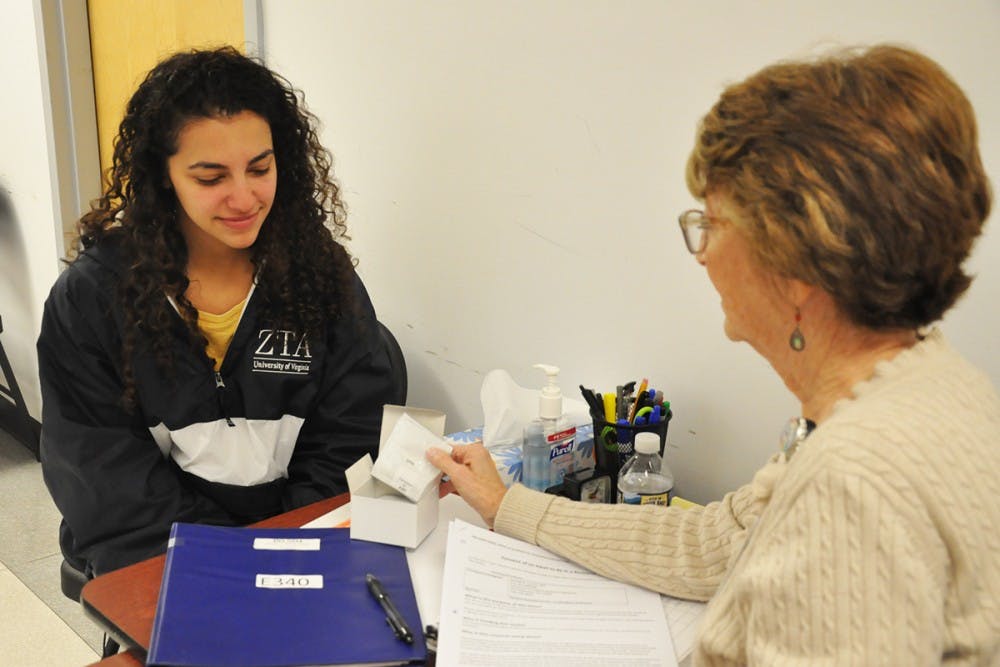A study headed by Pediatrics Prof. Ronald B. Turner at the University Hospital is seeking to determine the effects of incorporating a daily probiotic on eligible participants infected with a rhinovirus.
University nurses screen and meet with volunteers for two weeks prior to the addition of a probiotic — a form of live bacteria that helps to improve overall intestinal and immune health — to eligible participants’ diets. Participants, who are randomly chosen to be part of either a group that receives the probiotic or a placebo, are then monitored for four weeks while they ingest the product.
To deliver the treatment, a supplement is provided in powder-form to be mixed with a drink of water every morning. Afterwards, the participants will be exposed to a rhinovirus — the virus responsible for the common cold — and then analyzed for the effects of the probiotic or placebo on their health.
Turner, the principal investigator of the study — a position requiring him to execute the planning of the experiment and making him responsible for organizing data — said this was a repeat of a previous cold study but with a look at the possible effects of adding a probiotic.
“We did a similar study two or three years ago, same probiotic, same study design, and that study was designed to determine whether or not the probiotic had any effect on the immune response of the volunteers to the virus,” Turner said. “And so we did find some apparent effects of the probiotic on the immune response, and so this study is to determine whether that effect has any impact on infection and illness.”
In order to be included in the study, volunteers underwent a pre-screening process that involved testing for antibodies — protective proteins made by the immune system to combat the rhinovirus. Based on the pre-screening, the team found about 75 eligible participants who will next be tested for the other inclusion criteria. Volunteers must not take any other probiotics or antibiotics and can’t have any significant diseases 一 respiratory or otherwise — that might interfere with the results of the study.
Second-year College student Ruth Rosenfeld decided to participate in the study when she received a flyer from someone outside the hospital and learned about the potential for a $750 compensation.
She said that as a part of the pre-screening procedure, she was told what she would have to do in the study.
“Then they took us back into a room and just drew our blood,” Rosenfeld said. “One of the nurses told me was that there was a 60 percent chance you didn’t have the antibody, which would qualify you for the study, and there’s a 40 percent chance that you would’ve already gotten this strand of the cold.”
Second-year College student Ashley Leidy decided to participate in the study not only because the University can compensate eligible participants up to $750, but because she found the research topic interesting. Leidy said that probiotics are becoming a more popular avenue for research, and she said she thinks that it is vital to research the actual results of probiotics and their effects on various aspects of human health.
“Through my participation, I hope to gain some knowledge about the effectiveness of probiotics,” Leidy said. “I am interested in the medical field and if the probiotic turns out to be significantly beneficial, it may be something I suggest to my future patients.”
Although Turner admitted there currently isn’t much evidence to support the positive effects of probiotics on the common cold, he mentioned the possible implications of replicating the effects of the previous study that was conducted.
“If it has a significant effect on the common cold infection and illness, the other things that we’re doing as part of this experiment are collecting specimens and doing studies to see if we can figure out how it had that effect,” Turner said. “And we’re going to try to confirm the results of the previous study. So we’re gonna be looking at that all at the same, and depending on what we find there, it may lead to additional studies.”






